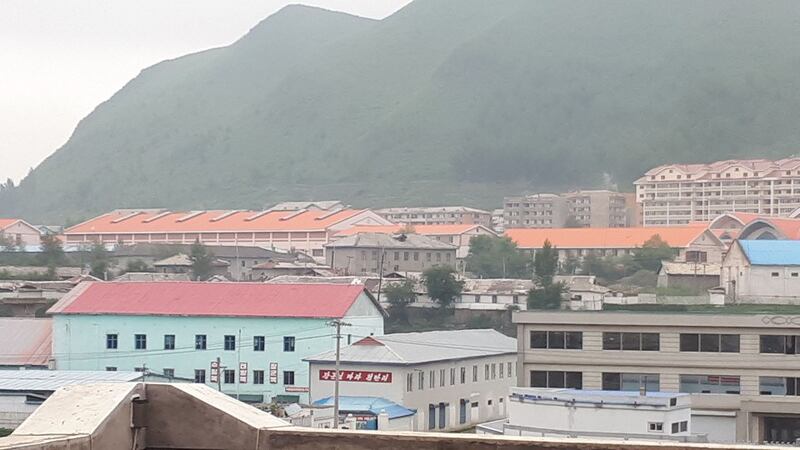Smugglers in North Korea are struggling to find new sources of income after regime leader Kim Jong Un increased guard posts along the country's border with China, according to sources.
The directives, issued by Kim after severe floods in 2016, required guard posts to be erected along the Yalu river every 100 (330 feet), according to Hyesan residents.
A source from the Changbai Korean Autonomous County in China's Jilin province recently told RFA's Korean Service, that the increase in security had led to a partial collapse of the local smuggling-based economy.
Once-booming border cities like Hyesan, situated in North Korea's Yanggang province along the border with China, have experienced a crash in housing prices since the directive made smuggling more costly and difficult, said the source, who spoke to RFA on condition of anonymity.
“As border controls became more severe, residents who used to live on small-scale smuggling lost their livelihoods,” said the source.
“They now make their living by selling food on the street. Some residents have to wander around areas surrounding the city because sometimes they can’t sell even half of the food they’ve prepared for the day.”
According to the source, the crackdown on smuggling has not only harmed the livelihoods of the smugglers, but has had an effect on the entire local economy.
“Blocking the border only for the sake of the security of the regime is like turning a blind eye to the people. While it is difficult for the [former smugglers], merchants at the local markets are now also not getting supplies and the market economy is shrinking as a result,” said the source.
“Housing prices along the Yalu are also crashing because making a living is much more difficult with the increased border controls,” he added.
“In Hyesan the area around the local market where many residents used to gather is quiet these days.”
“As a [prominent] border city, Hyesan once had a bustling market economy, especially in comparison to other cities farther inland,” said the source.
The regime recently ordered that border towns facing China be refurbished to keep up appearances. Construction in the less central areas of the city should have been halted when the economy began its nosedive, but inexplicably, construction continues.
“Even in this [economic] situation, apartment buildings continue to be built in the Gangan and Wiyon neighborhoods, to comply with Kim Jong Un’s orders,” the source said.
“The newly built apartments are better than the ones in downtown Hyesan, but they don’t sell even at the low price of 20,000-30,000 yuan [U.S. $2,900-4,350] because there isn’t anything people can do to make money in those neighborhoods since the border is blocked.”
A resident from Hyesan described the conditions of the newly built apartments.
“In Wiyon, they keep building these apartments. They look good from the outside but they are poorly heated. It’s pathetic to see what they are like on the inside,” said the Hyesan resident.
Even in such hard economic times, the regime is ordering people along the border to make unnecessary home improvements to keep up appearances.
A resident of Kimjongsuk county, about 60 kilometers (40 miles) to the west of Hyesan, said, “Every house near the border has been ordered to change its roof tiles, so villagers are busy replacing them even though it’s already hard to make a living.”
“But they have to have colorful roof tiles. Ordinary people are using low-quality earthenware tiles [to comply],” said the Kimjongsuk resident.

Uncertain future for legitimate business
Meanwhile a Chinese-North Korean joint venture in Hyesan seems to be flourishing. Housed in a former state-run glass factory that closed down during the 1990s economic crisis, a lumber export business sprung up in its place.
Chinese staff work in the building, but North Korean workers handle the lumber processing, making building materials to be exported to China.
According to residents, the workers in the lumber factory are paid well and receive their proper food rations, unlike workers at nearby state-run factories.
But workers in the state-run factories, despite being envious of their lumber-processing counterparts are concerned about the long-term prospects of the joint venture with the Chinese. They say that valuable forest resources are quickly disappearing as more and more plywood is sent so cheaply to China. Once the forests are gone, there will be no more lumber to process there.
Reported by Hyemin Son for RFA’s Korean Service. Translated by Leejin Jun. Written in English by Eugene Whong.
